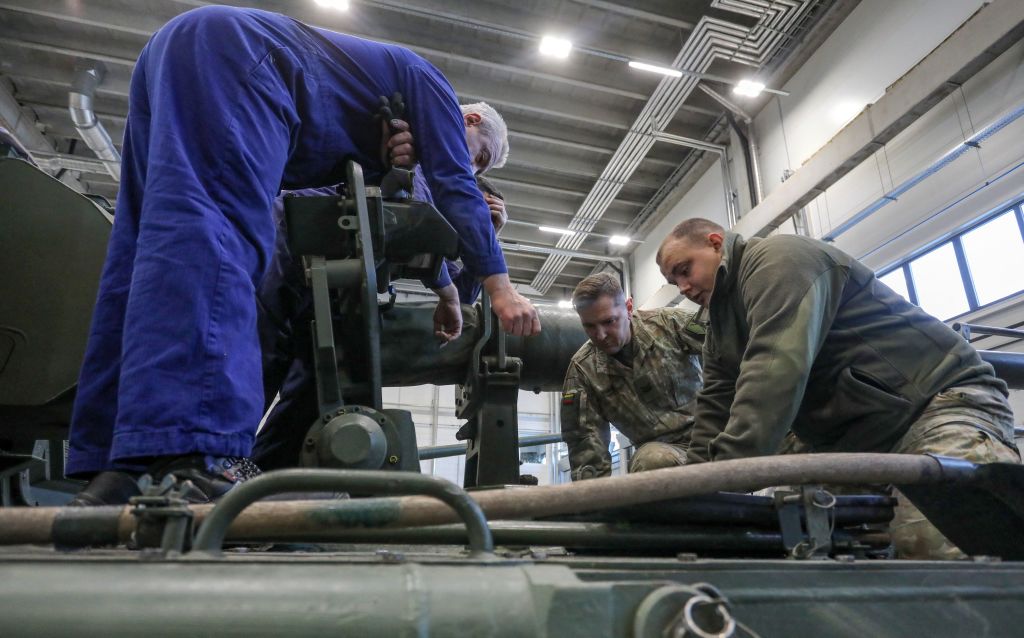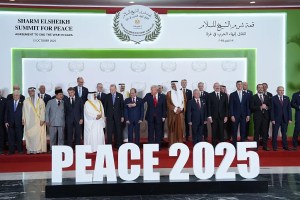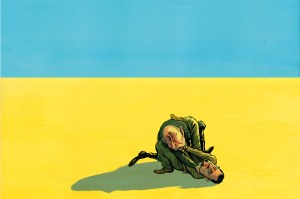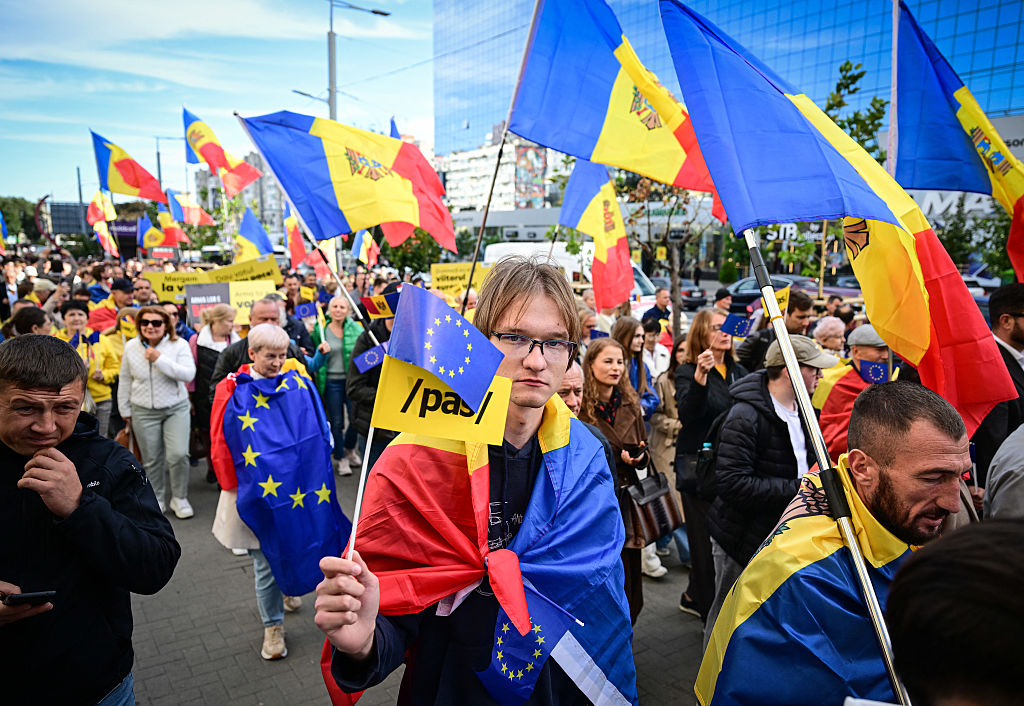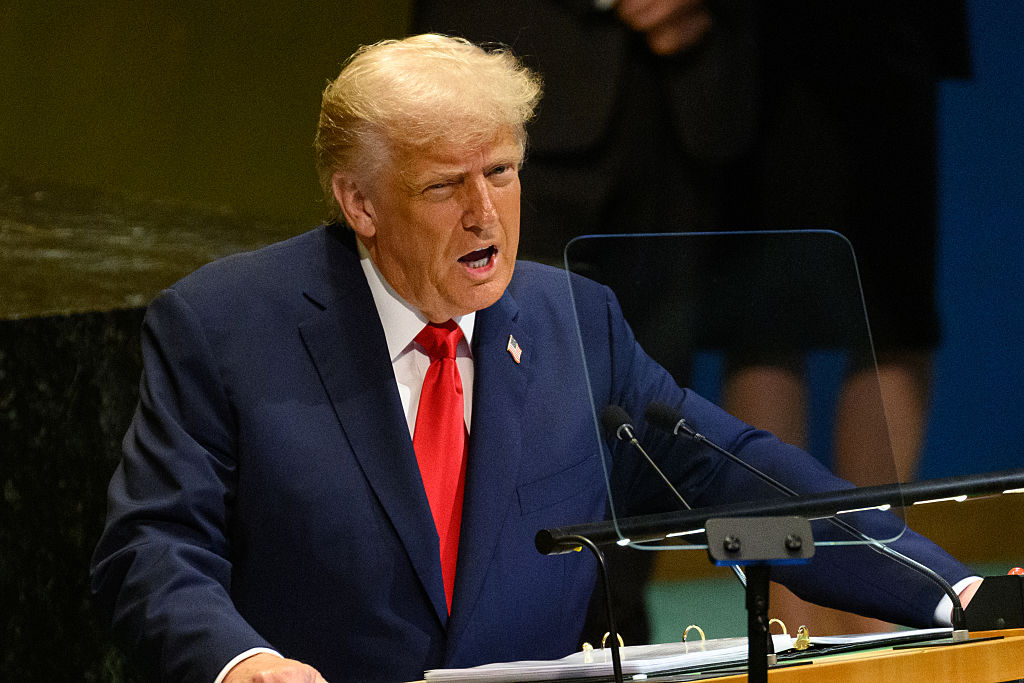It is not inevitable that the Baltic States of Estonia, Latvia, and Lithuania would be among freedom’s most potent defenders. Nestled between the Russian mainland and Moscow’s exclave of Kaliningrad, their only direct connection to their NATO allies is through the vulnerable Suwalki Gap. For its part, NATO only has small rotational forces stationed in the three countries.
At first glance, one would expect these tiny nations (Lithuania is the largest at 2.8 million people) to prefer flying under the radar. Instead they have become some of the most vocal and powerful defenders of the Western way of life. Tiny though they may be, the Baltic countries have managed to stand up to the two greatest enemies of freedom at work today, Russia and China. In doing so, they have provided a model of resilience and resolve that will be necessary if democracies are going to successfully confront their growing list of foes.
Lithuania is exhibit A. In 2021, Vilnius decided to allow Taiwan to open a representative office in the country, and to do so under the name “Taiwan” rather than the China-friendly “Taipei.” Typically, Taiwan’s offices overseas — which are embassy-like diplomatic missions in countries that recognize the People’s Republic of China instead of Taiwan — bear the name Taipei so as not to anger Beijing. To the CCP, referring to the island democracy by its name confers legitimacy on its existence as an entity separate from China.
Accordingly, China went to every effort to punish Vilnius for its unforgivable sin — even though Lithuania still adhered to the “One China Policy.” Beijing refused to allow imports from or exports to Lithuania and made it exceedingly difficult to conduct trade in goods that have parts produced in Lithuania. The intent was to crush Lithuanian resolve, and at first, it seemed like the economic war might succeed in forcing Vilnius’s hand. Taiwan was quick to aid its newfound friend, purchasing goods that were now barred from export to China, and pursuing new investments in Lithuania. The EU, however, was slow to respond in support of its member state, and the economic pain was biting in Vilnius.
Eventually, though, the EU stood behind Lithuania, launching a challenge at the World Trade Organization against China’s economic pressure campaign, which garnered support from the US, UK, and other Western nations. The US also stepped up in the form of a $600 million export credit.
In November 2022, Lithuania opened its own office in Taiwan. It has continued and expanded its cooperation with Taipei, inking new deals to bolster chip production in Lithuania, among other actions. Though its success has flown under the radar due to the larger events unfolding in Eastern Europe, the message it sent was powerful, not least because such a small country had stood up to one of the world’s biggest bullies — and succeeded.
The other Baltic nations have shown themselves to be similarly tough. In response to China’s economic coercion, Lithuania withdrew from Beijing’s flagship economic effort in the region, 17+1 (its official name is a mouthful: Cooperation Between China and Central and Eastern European Countries). By August 2022, both Estonia and Latvia would withdraw as well, joining their ally.
All three have been some of the most consistent and vigorous supporters of Ukraine in its fight against Russian aggression. The Baltic nations were pushing to deliver arms to Kyiv well before Russia invaded in February, even coming into conflict with Germany (little has changed) over the export of German-origin howitzers. All have been staunchly opposed to pushing Ukraine towards a premature settlement.
Since the beginning of the war, Estonia, Latvia, and Lithuania have also provided among the largest amounts of aid to Kyiv in proportion to gross domestic product. They, unlike many European nations, have heeded the call to dig deep into their weapons stores. The recently announced Tallinn Pledge continued this trend. Though the raw numbers seem small compared to what the US has provided, in the context of the Baltic countries’ size, it is massive. The Baltic States have also cooperated extensively in defense, recognizing their common challenges and individual weaknesses.
In early January, Estonia ordered that Russia’s diplomatic mission in the country cut its staff to equal that of Estonia’s in Russia. Moscow retaliated by ordering out Estonia’s ambassador, and Estonia then returned the favor. Latvia, though not involved in the dispute, ordered Russia’s ambassador out of Riga in a show of support for its neighbor. Lithuania, for its part, had already done this in April of its own accord.
If only NATO and the West were so cooperative and consistent. Instead, fiascos from Berlin’s resistance to weapons deliveries to Paris’s calling for giving Putin an offramp seem to be constant background noise.
What motivates and allows the Baltic States to act as they have? First, it is history: all three countries suffered under Soviet occupation until the collapse of communism in Europe. They were some of the few places where even Mikhail Gorbachev was willing to use violence to try to quash independence movements. Democracy and sovereignty have a deeply significant meaning to Estonia, Latvia, and Lithuania. They also have the misfortune of living next door to their former colonizer and, particularly in Estonia’s and Latvia’s cases, have large Russian populations.
Having the will may be one thing, but the environment is also critical. Simply put, the Baltic nations as they are today would likely not exist without the US-led global system. Europe — as Germany has so readily illustrated — is woefully indecisive and ill-equipped to deal with threats even in its own backyard. If the Baltics were not part of NATO, in all likelihood, Putin would have crushed them first. If the US did not enforce respect for the inviolability of state borders and sovereignty, there is not much the three tiny nations could do to preserve their independence.
Among advocates for freedom who are willing to put their money where their mouth is, the Baltic States are in the top tier. If every Western country took preserving freedom as seriously as the Baltics, the world would be a much safer place. Maybe it is time to pay attention to their example.



